House of Julia Felix in Pompeii
The House of Julia Felix is a large Roman villa in the city of Pompeii. It was the residence of Julia Felix, who converted several sections into rental apartments after the AD 62 earthquake. C. precursor to the catastrophic eruption of Mount Vesuvius in 79 d. C. that destroyed the city. Archaeological excavations began in 1755 and are still ongoing. As the residence of several family units, it is an invaluable testimony.
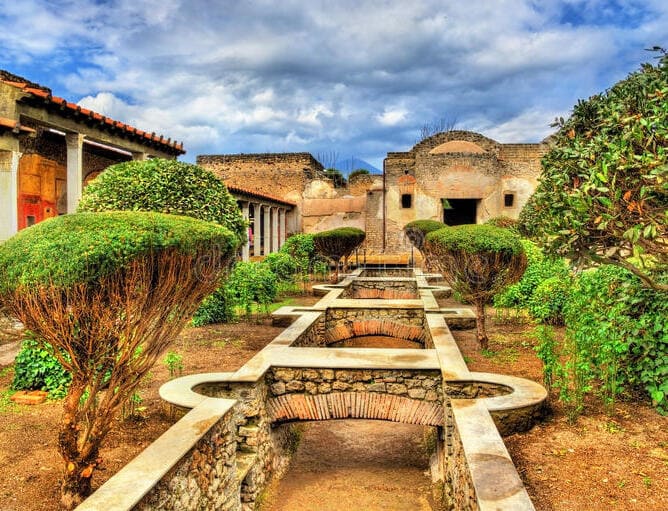
Who was Julia Felix in Pompeii?
Julia Felix was a Roman woman who lived in the city of Pompeii and a wealthy landowner who had inherited the family fortune from her. She owned a magnificent villa that occupied an entire city block and that researchers have documented as being very well furnished and decorated until she was badly damaged during the 1962 earthquake.
After the earthquake, Julia Felix rented part of her property to other Pompeian residents who had lost her houses and thus transformed parts of her villa into public baths, shops, taverns, and apartments. Renting part of the villa from her allowed her to earn an extra income and establish herself as a respectable businesswoman and public figure in Pompeii.
The following advertisement was found written outside:
“IN PRAEDIS I[VLI]AE SP(VRI) F(ILIAE) FELICIS / LOCANTVR / BALNEVM VENERIVM ET NONGENTVM TABERNAE PERGOLAE / CENACVLA EX IDIBVS AVG. PRIMIS IN IDVS AVG. SEXTAS ANNO[SCO]NTINVO[S QV]INQVE / S. Q. D. L. E. N. C.”
(In the farm of Julia Félix, daughter of Espurio, beautiful bathrooms are rented for select people, shops, pergolas and rooms, from the first of the Ides of August until the sixth year, the rent will be renewed by simple agreement.)
What does Felix mean?
Felix, is a Roman cognomen meaning Lucky, was an epithet of the dictator Lucius Cornelius Sulla and his descendants in the republican era.3 In the imperial period it was a name that implied good luck as well as one of the most common cognomina and slave names.
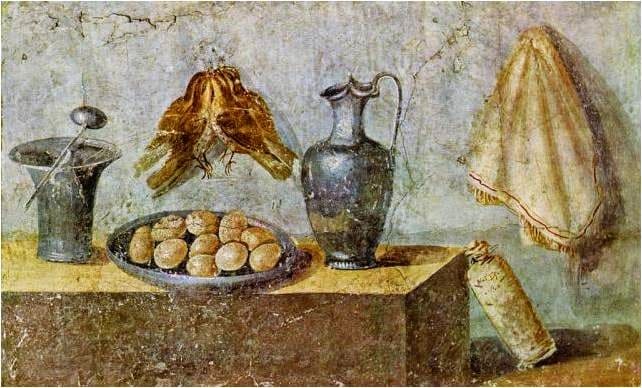
When was the Villa of Julia Felix discovered in Pompeii?
From the first excavations in Pompeii, the villa of Julia Felix was revealed. As early as 1755 many sections of the villa were uncovered when excavating the city of Pompeii began. A complex tavern, luxurious baths, and a rich upper room overlooking the garden turned up in the first excavation.
Between 1912–1935 an unknown sanctuary and façade was discovered along the Via dell’Abbondanza but when the entire building was excavated, two statues were also found.78
Between the years 1998–1999 new important discoveries arose. A bulldozed trench behind the caldarium allowed it to be dated as early as the time of Augustus. The caldarium revealed a drain for the water used in the hypocaust system, which conducted heat to the bathrooms or rooms in wealthy Roman houses.
The nymphaeum or grotto of the decorative nymphs was also discovered with a fountain with steps and the triclinium added after the earthquake of 62
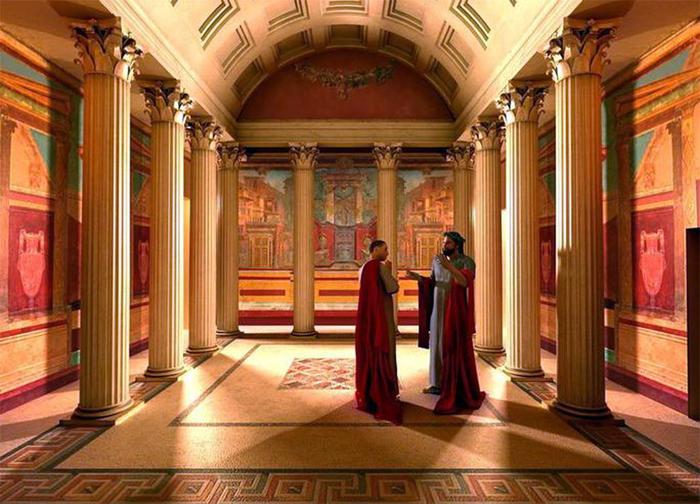
How was the Villa of Julia Felix in Pompeii?
Julia Felix was a domina who acquired the role of businesswoman, forced to pay for the renovation of the damage suffered in her town by the earthquake that occurred in AD 62. While continuing to live in his residence, he advertised on his façade that he not only rented his elegant baths worthy of Venus to respectable people, but also a sector of apartments and other shops with pergulae (a balcony room on the second floor), converted into the public fraction of the house, which also had a thermopolium.
Surely, the tenants of Julia Félix’s properties received the most luxurious and exclusive environment that one could come across in the City of Pompeii.
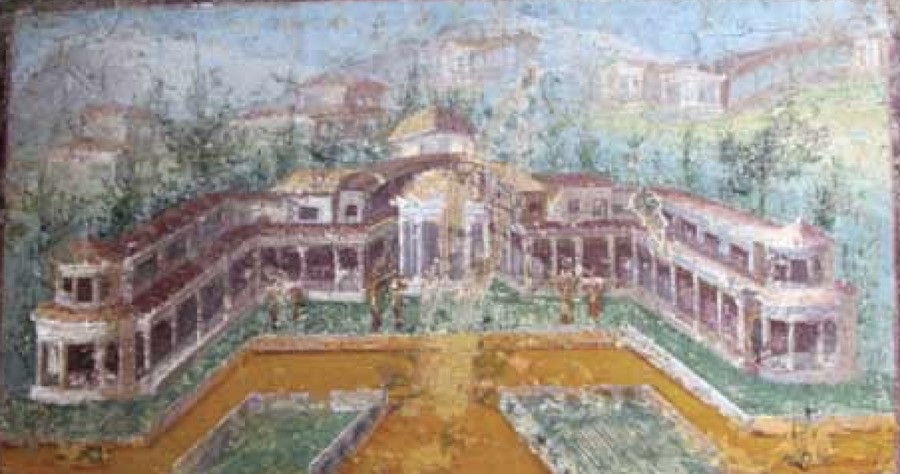
Street advertising in Pompeii
Any advertising claim was worth as long as it attracted regular customers and foreigners passing through the establishments. Inscriptions similar to the one on display in Julia Félix’s house, emblems, and advertising signs distinguished some types of taverns and boarding houses from others; the locals knew about the disreputable slums because of their fame and not a few of them lacked identifying marks, which is why a pimp easily managed to cajole Encolpio –one of the characters in The Satyricon–, unfamiliar with the town of Pompeii, to get him into a brothel.

What was the architecture of a villa in Pompeii like?
The houses of the wealthy in Pompeii were built around rectangular courtyards so that the main rooms opened onto them. These houses had enclosed gardens and private water supply. Over time, wealthy Pompeians used stucco to decorate the architecture, marble slabs to provide light, as well as brightly colored paintings in their interiors.
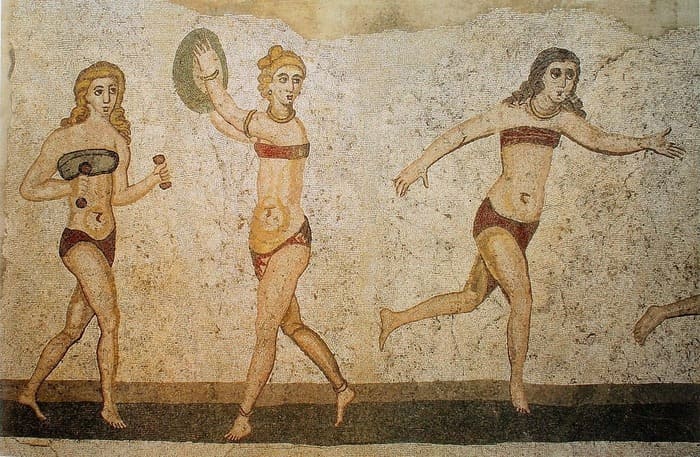
How was a Julia Felix Villa in Pompeii?
Within their villas, the Pompeians expressed their personal tastes. Some opted for paintings copied from the Greek classics and others would choose themes of love or fertility, but most chose landscapes. Those found in Pompeii show scenes of local life, villas along the coast, or forests and hills. When an owner in Pompeii lost part of his garden when building a new room, he ordered the lost garden to be recreated on the room’s walls.
How was the art in Julia Felix’s house?
The art inside Julia Felix’s villa is also very interesting. Her villa contains a unique series of paintings depicting daily life in the Forum, including market stalls, an open-air school, people conversing in the arcades, and a beggar receiving alms from a lady with her maid. her. Julia Felix was a descendant of the Julii, imperial freedmen, which may have influenced her choice to show everyday middle-class life.
TSA liquid carry on rules 2022
How to get to Pompeii from Rome
- Train: Take the train in Rome, station Termini has Naples, station Piazza Garibaldi. Once there Take the local Transvesuvian train (in the same station, in the underground) to the Pompeii station. 2 hours of travel.
- Bus: Line 23 From Rome to Pompeii 4 hours of travel.
- For Visit Pompeii: Where to stay in Naples click here
Notes
Segreteria Ernesta Rizzo, Clelia Mazza Via Plinio n. 4 – 80045 Pompei (NA) – coordinate + 39 081 8575111 [email protected]
Ufficio Scavi di Pompei Direttrice Grete Stefani [email protected]
Related Post








